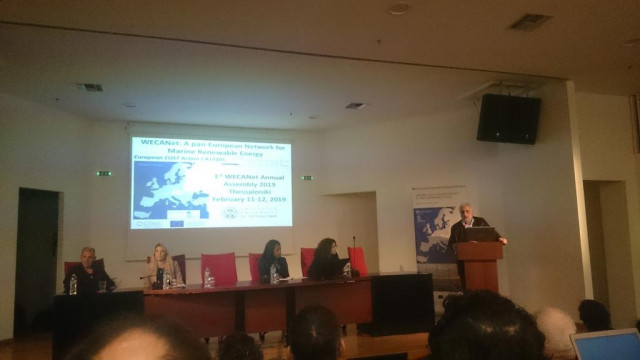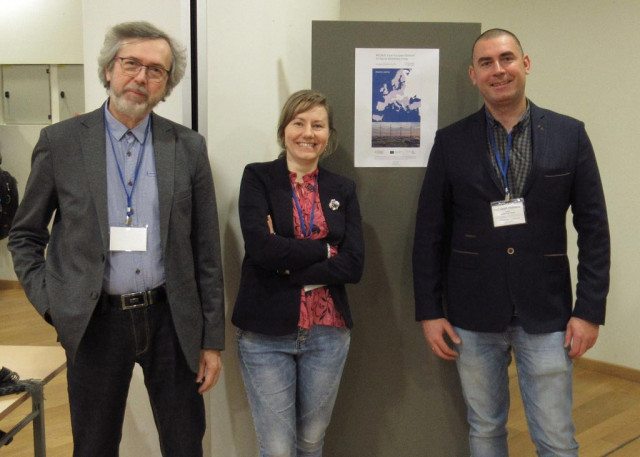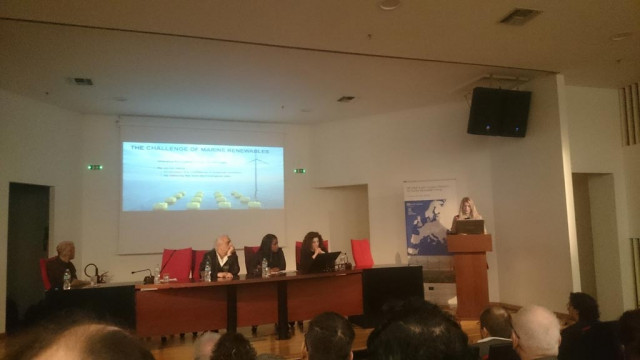The 1st Annual Assembly of COST Action CA17105 "A Pan-European Network for Marine Renewable Energy with a Focus on Wave Energy" (WECANet) took place at the Aristotle University of Thessaloniki on 11-12 February this year.

The campaign is a networking project funded by the European Commission through the European Cooperation in Science and Technology (COST) and aims to develop marine renewable energy in the European Union with a particular focus on wave and ocean energy conversion.
The meeting included presentations by four research groups and meetings of the Action Management Committee (MC) and the Core Group as well as the networking meetings of the participants. The meeting was attended by six representatives from Poland: mgr Dorota Chybowska (Director of the Centre for Maritime Technology Transfer, Maritime University of Szczecin), dr hab. Inż. Leszek Chybowski – member of the WECANet Action Management Committee (researcher at the Faculty of Marine Engineering, Maritime University of Szczecin), dr inż. Andrzej Montwiłł (Director of the Institute of Transport Management, Maritime University of Szczecin), dr inż. Maciej Reichel (Gdańsk University of Technology and Foundation for Safety of Navigation and Environment Protection in Iława), dr hab. inż. Małgorzata Robakiewicz – Member of the WECANet Action Management Committee (Institute of Hydroengineering of the Polish Academy of Sciences), and dr hab. inż. Wojciech Sulisz (Institute of Hydroengineering of the Polish Academy of Sciences).
Our employees actively participate in the projects of working groups:
- No 3 Technical aspects (reliability, serviceability, materials, etc.) related to wave energy conversion;
- No 4 Non-technical aspects (social, economic, legal, environmental, etc.) related to wave energy conversion.
The results of the tasks carried out during the Action will be disseminated at thematic conferences and in publications. WECANet also offers individual short-term study trips and summer schools to improve participants’ competence in the field of sea wave energy conversion. Any scientist from Poland dealing with renewable energy, with an emphasis on the processing of sea and ocean wave energy, can take part in the events.
WECANet builds a solid foundation for the implementation of international projects, including those funded by the European Commission from Horizon Europe programme. Wave and ocean energy has not yet been effectively harnessed, and the difficulties associated with producing this type of energy and its integration into the grid are still very high. Existing demonstrators of installations that have been launched in several European countries (UK, Denmark, Portugal) have not produced the expected results due, inter alia, to the above-mentioned reasons. In addition, information on technological progress in this area is scattered, and the legal foundations and economic and environmental analyses are scarce. WECANet is the beginning of harmonisation of the knowledge base in the field of energy generation from sea and ocean waves, both technologically and non-technological
More information on the website of the NCP: http://www.kpk.gov.pl/wp-content/uploads/2016/12/COST.pptx




